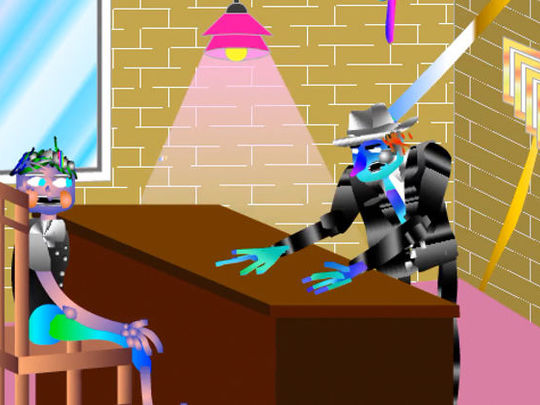
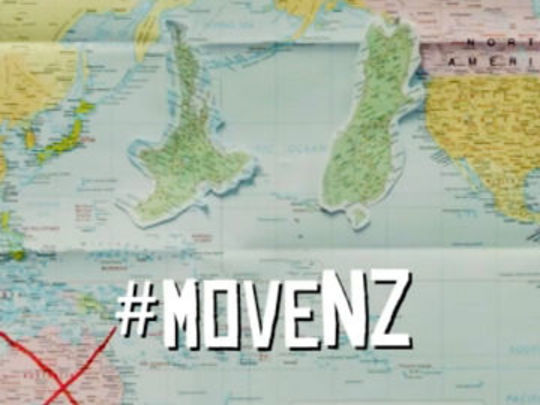
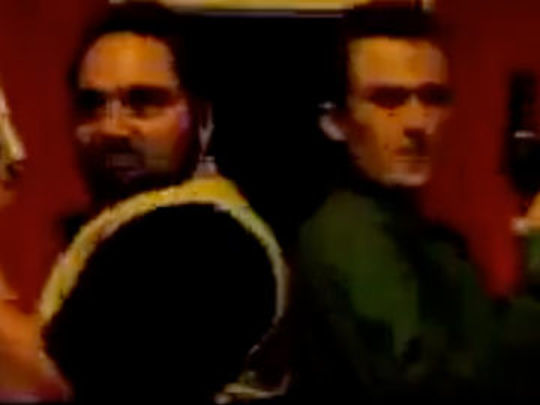
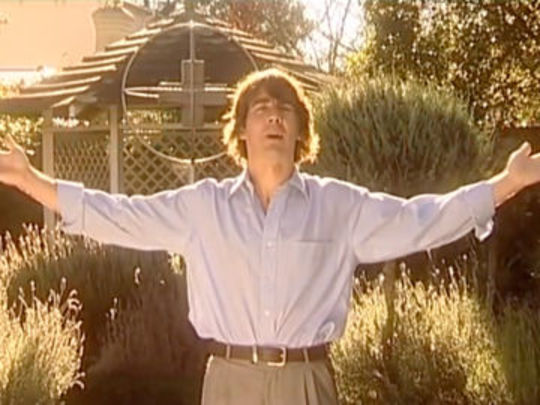
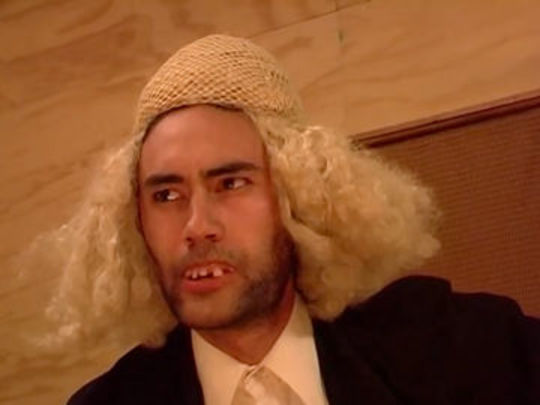
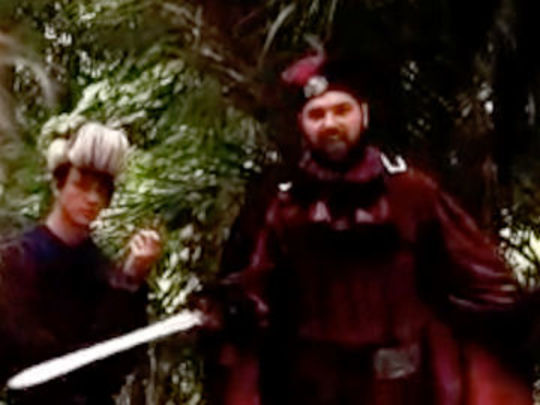
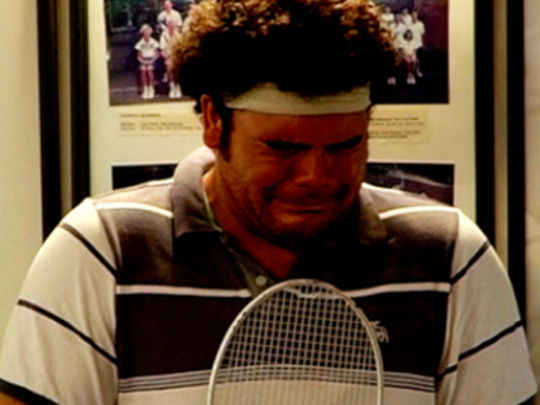
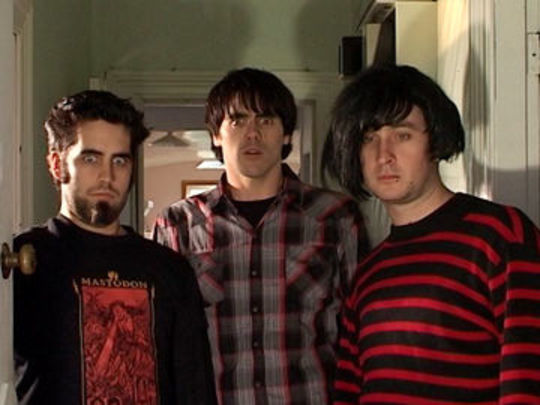
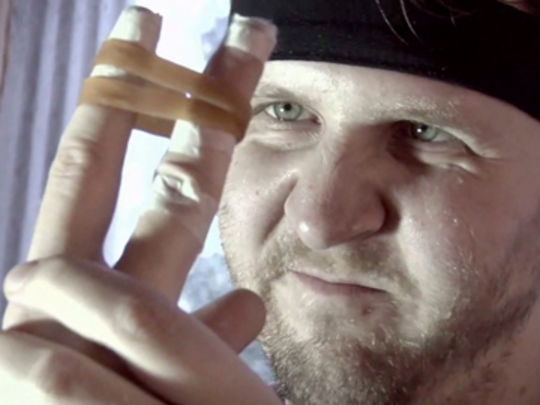
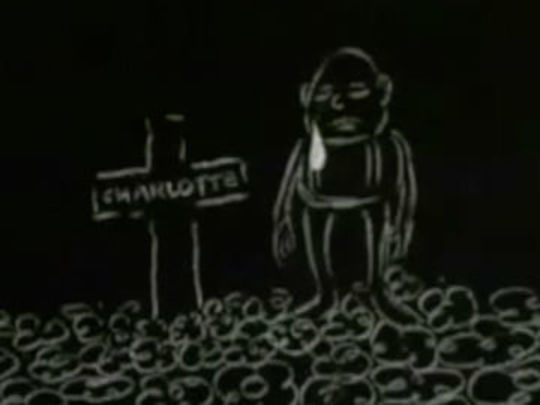
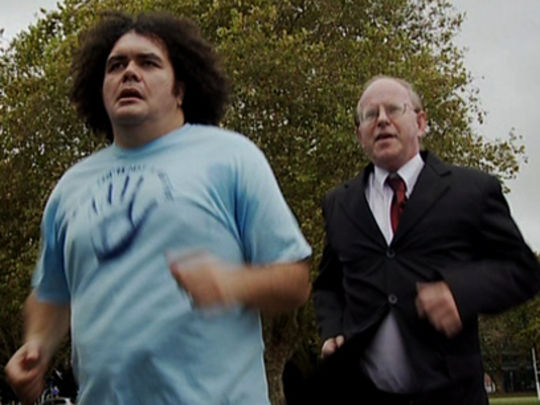
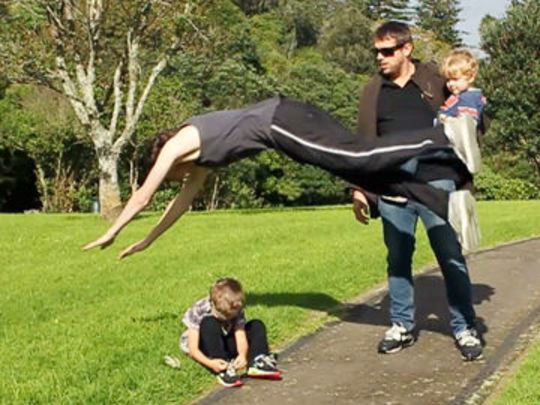
The 48Hours Collection
The 48Hours Collection
This collection has four backgrounds:
Tributes to 48Hours
Twenty Years of Guerrilla Filmmaking
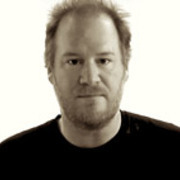
Changing Times: From MiniDV to Cellphones
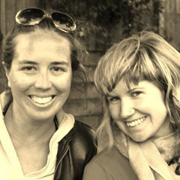
Memoirs of a Superfan
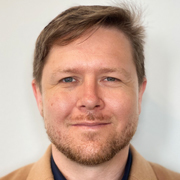
Tributes to 48Hours
By Friends & Fans 06 Oct 2022
"It works because it's addictive and infectious, but most of all it's something truly special to create something so quickly and then have an audience appreciate it."
- 48Hours founder Ant Timpson
"The competition aspires to nurture our amateur, emerging and established filmmakers by creating a platform for them to make and share their films."
- 48Hours national managers Ness Patea and Ruth Korver
"You never have that amount of fun and freedom in any other filmmaking environment . . . it is really good for creativity. You need to embrace the chance to take risks and make huge mistakes. It’s one of the only times, as a filmmaker, that you’ll get to screw things up and not get fired or have your career ended. I'm glad we have the festival; I think it’s a great tool for people who want to let loose for the weekend."
- 48Hours veteran Taika Waititi (48Hours films Heinous Crime, Falling Leaves, Slade in Full, Arab Samurai and A Perfect Love), The Sunday Star-Times, 30 April 2012
"48Hours is just the best. You waste all year working on one stupid screenplay and then WHAM! you’ve got 48 hours to make a whole film! I’ve been doing it for 12 years and each time I’ve been hugely challenged; I have learnt so much and have been disrupted in how I think about filmmaking."
- Actor/director Tom Sainsbury ((Time) Travel Centre, Peptok)
"48Hours has the knowledge about who the passionate and skilled new filmmakers are."
- 48Hours wildcard judge Peter Jackson, in a Ministerial Review of the NZ Film Commission
"I think the reason that you get involved with the 48 is because it's like free school ... There's really no cost, other than your health — like I said, you barely sleep. But you learn so much and if you're really keen on being a filmmaker, then you should really learn by doing. And the more you can get your content out there, and the more you can be less precious about it ... the better. The 48 is this amazing broad, equalising platform..."
- Writer/director Lauren Porteous, the first woman to win the top prize at 48Hours (2017's Under the Bridge)
"For me 48Hours is like Christmas; the films are the presents that I unwrap each and every year. The mantra of the competition encourages teams to go wild and use guerilla filmmaking techniques. I realised early on that I loved the style of films that got produced as a result."
- 48Hours superfan, critic and past entrant Dave Brough (aka steelpotato), in his 48 Hours backgrounder
"It's been a pleasure to watch many filmmakers evolve through participating in the competition — from starry eyed greenhorns to savvy professionals, who have since built careers in the industry."
- 48Hours founder Ant Timpson, in his 48 Hours backgrounder
"We’re seeing category winners show up on the Civic Theatre stage who weren’t even born when the competition began."
- 48Hours national managers Ness Patea and Ruth Korver, in their 48 Hours backgrounder
"You may have disasters, hardship, or complications over the shoot weekend, but if you give it everything you will have created a short film in just a couple of days."
- 48Hours national finalist Hweiling Ow (Snow Country for Cold Elves)
"I'd hate to imagine what the future of New Zealand filmmaking would be if Ant Timpson hadn't created this event. It allows people to try things out, fail and succeed in equal measure, and watch their film on a big screen."
- Jarrod Holt from two-time national champions The Downlow Concept (Brown Peril, Only Son), The Sunday Star-Times, 30 April 2012
"48Hours opens doors for young people. It's a great networking opportunity for newcomers and professionals alike."
- Writer/director Kaia Jamieson, who won Best Under 18 Film in 2021 with her first entry, Toasted
"48Hours is the best play space. When else do you get to follow your creative whims, smash out a film and try something new!? It’s been vital for honing my craft, and so inspiring to be in an environment that is generous, collaborative and batshit — in the best possible way."
- Director and animator Matasila Freshwater (The Real Rare Arctic Firefly)
"When I first entered 48Hours about 11 years ago, it was something that really helped me get started into filmmaking. Now I run my own video production company that employs a full-time production team. The 48Hours has definitely been instrumental in pushing my love of filmmaking."
- Director/cinematographer Calvin Sang (Roller, Red Touch Yellow and Mugs)
"...everyone, from Oscar-winning directors to high school teams, compete in this competition and the spirit of friendly competition and mutual love of the craft, combined with the time constraints bring out the fantastic shorts we see each year."
- Writer/director Tim Batt (The Child Jumpers), The F***et List), The Sunday Star-Times, 30 April 2012
"...there are always dramas putting the film to tape or exporting a quicktime file in the eleventh hour [before] the final frenzied dash for the finish line. Arriving at the venue is utter chaos with cars double parking up on the footpath, people leaping out of the car and sprinting towards the door. Every year some poor team sits on their laptop metres away from the finish line cursing at their slow-rendering film as the final seconds fall off the clock."
- Writer Jared Kahi (Lease), Beyond Belief) recalls the bad old days before 48Hours films could be delivered online, The Sunday Star-Times, 30 April 2012
Twenty Years of Guerrilla Filmmaking
By Ant Timpson 06 Oct 2022
Come with me as we go back in time to the wild and woolly beginnings of the 48Hours competition — almost back to the turn of the century, aka 2003.
Some context is required to give a full picture of how it all began. Around the start of 2000s, there was a global movement of limited-time filmmaking— competitions where a film had to be completed in a tight timeframe. This coincided with a wave of camcorders that were flooding the home consumer market. The new technology made it much easier for anyone to shoot and edit their own footage.
After launching the Incredibly Strange Film Festival in 1994, I'd been working on a few events with the owner of the Alamo Drafthouse Cinema in Austin Texas; I kept tabs of the fun things I saw happening there. One of them was the 48 Hour Film Project, which had begun in Washington in 2001, but was expanding to other cities. It reminded me of fun weekends I'd had in the mid 1980s, making horror shorts with my brother Matt and friends. The best part after making them was showing them to patient family members on Sunday night.
So I touched base with the 48 Hour Film Project owners about setting up something down in New Zealand — we were the first country outside of the United States to join the competition. I knew that starting a film competition from scratch would rely on sponsorships and marketing clout to get the word out to the right folks. I thought if I hosted it as part of The Incredibly Strange Film Festival, it would help take care of the marketing of the event, and hit all the movie maniacs who loved the festival, and were also creatives.
In 2003, the first year we launched 48 Hours in Auckland, 44 teams registered to participate — about 40 more than expected. Lots of fun folks got involved that year: including Taika Waititi (as an actor), Chris Graham (Sione’s Wedding), Jaquie Brown (The Jaquie Brown Diaries) and even a Western starring Scribe. In the end the Grand Prize for 2003 was taken out by Gerard Johnstone (Housebound) a South Seas Film and Television School graduate whose short Special Crime Unit represented New Zealand at the World Grand Final in Austin. It placed second.
I wasn’t enamoured with the relationship we had with the 48 Hour Film Project, nor with the traditional nature of the genres that competitors had to work with. I also felt it was far too one-sided in its relationship with filmmakers. I don’t even have access to those shorts from 2003 — one symptom of the problem. I felt that I could run a better competition, and had good support from organisations and sponsors on the ground in New Zealand.
So the next year I severed ties with the American contest and started 48Hours afresh. We expanded the competition to include Wellington, where Taika and Loren Taylor took out the first year with Heinous Crime. That really surprised them; they'd entered as a goof. That was the only year we had regional winners, instead of one grand champion — Te Radar took out the Auckland finals with Jesse McLeod - The Journey.
So how does it work? It's very simple; filmmakers have just one weekend (48 hours natch) to make an entire short film. Well maybe not that simple, as each team doesn't know what genre (thriller, romance, comedy, etc) they're getting until the start of the competition. All of the creativity — writing, shooting, editing, adding a soundtrack — occurs within a 48 hour window, which begins on Friday evening at 7pm, and ends on Sunday at 7pm. To add to the mayhem, they must also include some random elements. In previous years, these elements have included a specific prop, character, line of dialogue, or camera move.
These restrictions are also the key to the success of the competition. It forced innovation under pressure. It’s always been like this in the world of lo-fi and guerrilla filmmaking. When accidents are embraced and with the final deadline looming — it’s all about the delivery. Which is ultimately about creating a short and having an audience watch it. The traditional approach to this allows too much in the way of excuses and procrastination to enter the process — 48Hours eliminates all those deviations from the final goal.
The very thing that people think makes the 48 so hard is exactly the reason why it works, and why it's successful. The doing is everything. When I ran a film store in the 1990s, I got so bored listening to wannabes talk about the film projects they were never going to make. The 48Hours competition is a slap in the face to all the café filmmakers who talk a big game, but never make anything. Many seem content to wait for the funders to hand them a few million before they go on a film set. There’s this cliché about how we need to be dreamers. Well I say f### all the dreamers. Any idiot can dream. Just be a doer. Nike was right all along.
There have been a lot of changes over the years. It has been called everything from 48 Hours Furious Filmmaking to the 48 Hours Film Festival to 48 Film Project — for me its always been just the 48HOURS. The huge shift from analogue to digital happened relatively smoothly. It was terrifying, but necessary. The approach and methodology has also progressed over the years. But what hasn’t changed is the sense of fun and inspiration involved. I’m constantly surprised by the energy and explosion of new voices that come through. Looking back over 6000+ shorts, you can bet there’s a lot of same/same in terms of subject matter and aesthetics, but what’s surprising is that people are still creating original visions — even with all the restrictions we apply.
In the early days the maximum run time for the films was eight minutes. Then the comp tightened things up and dropped it down to five minutes, which is still the case today. Silliness has been at the forefront for much of the material created, but over the years we’ve seen a more mature approach to exploring the genres. One year I reached breaking point, when it seemed like every short was trying to be comedic — the next year I inserted the non-genre of 'drama' into the mix, in an attempt to force filmmakers to nix the goofiness and be more ambitious. The good filmmakers always shine through.
I guess we need to discuss why anyone would want to make a short film in 48 hours in the first place — apart from the need to scratch a creative itch. One big reason is to see your creation with an enthusiastic audience. Nothing beats that feeling — it’s right up there with making the film. There’s also a very underrated part of 48Hours — forming relationships with other fellow filmmakers. That’s become a huge reward for me personally: seeing creatives band together to form legitimate companies through the 48 connection. Some of the biggest success stories have avoided the traditional filmmaking paths — companies like The Downlow Concept, Chillbox Creative and Viva La Dirt League. All are proud of their relationship with the 48, and the launchpad it offered them.
It's been a pleasure to watch many filmmakers evolve through participating in the competition — from starry eyed greenhorns to savvy professionals, who have since built careers in the industry. At its core, the comp is still very much the same beast: one weekend to exhaust yourself creatively, and try to have fun along the way. I truly believe that 48Hours is crucial to the creative landscape of New Zealand — the proof is in the pudding.
The 48Hours competition has been cited by everyone from the NZ Film Commission, NZ On Air and Sir Peter Jackson, to the Minister of Broadcasting and the Prime Minister as an important part of the country's creative culture. A large list of talented folks have cut their teeth in the competition, and gone on to direct major TV and feature films. It's not the only pathway for people to make inroads into the industry, but it's definitely the number one way for relationships and foundations to be laid for a healthy creative community.
- Ant Timpson founded the 48Hours film competition and The Incredibly Strange Film Festival. He directed 2019 feature Come to Daddy.
Changing Times: From MiniDV to Cellphones

By Ruth Korver & Ness Patea 06 Oct 2022
In 2022 the 48Hours film competition celebrated its 20th year of guerrilla filmmaking.
It started in 2003 as a sidebar to the Incredible Film Festival — with just 44 teams in Auckland — before expanding first to Wellington, and eventually taking over the entire country.
Launched by renegade producer/director Ant Timpson, 48Hours was all about abandoning traditional pathways of funding and slow development and diving headfirst into making a film. Risks, mistakes, fast decisions, new friendships, fallings out, failure and surprise success were the name of the game. Most of all, the competition is about making filmmaking fun. Over 6000 48Hours shorts have been produced to date.
Ness Patea and I have been co-managing 48Hours for the last five years, but my own first taste was way back in 2005. MiniDV cameras were then the cutting edge of technology, and the team were able to borrow a camera from the Learning Connexion art school where we worked. We had a Hi8 camera as backup. We had Antonia Prebble lined up to act (before she was famous), and Marty Williams ready to shoot it.
We filmed most of that day. Then the tape failed, so mid-afternoon we had to start from scratch. The film was below average and didn’t make loads of sense, but the team and I were hooked. We liked making films, but this was something else: the adrenaline rush of a tight deadline, the self-confidence caused by a lack of sleep, and getting to create with my mates, made for the best thing ever. The competition became an annual event to plan the year around. Along the way, we had a crack at a musical, a dance film, and got the coverted 'Best Disqualified Film'.
After nine years of entering, we did get better — nothing like practice to make you improve. In 2013 I finally ended up in a winning team, and decided it was time to stop competing and work behind the scenes. I ended up co-managing the Wellington contest, then joined the national management squad with Ness and Ant.
Ness and I have always been big supporters of 48Hours: from entering in teams, to blogging the filming weekend, and sponsoring the Best Actress Award. We focus on great storytelling, risk-taking and diversity. Each year we try to streamline the competition to make it an intensive, challenging and creative experience for our participants. The competition creates links with the screen industry by getting the top films in front of accomplished industry professionals — our judges.
The 48Hours community also plays a big part. The participants give each other feedback, support and recognition — both online and in person, at our many events. We meet so many people who have an association with the competition; everyone has a 48Hours story to tell, and many people attribute the competition to their current screen career or media job.
This year we interviewed Gillian Ashurst, director of 1996 feature Snakeskin, for a filmmaking workshop in Christchurch. She revealed that her latest short film The Meek was inspired by a 48Hours entry she'd done with her family a few years prior. 48Hours is a great training ground for filmmakers. Viva La Dirt League came through the competition and are now making a living basically "making three 48Hour films a week" for a YouTube channel that gets millions of views. Their comedy skits just go to show you can make a living doing what you love. Taika Waititi won awards in the early years of 48Hours. While we can’t claim all of the credit for his success, he is one of many talented creatives who have cut their teeth over the adrenaline-filled event.
Over 20 years, times have changed. MiniDV is obsolete; now people want to submit their film in 4K [a measure of resolution]. These days teams can shoot 4K on their cellphones. Access to technology, and the ability to do complex post-production on simple home computers and tablets, has upgraded the quality of films immeasurably. School kids turn up with production quality better than the winners from those early days.
What hasn’t changed is the filmmakers. Keen, enthusiastic, experimental and filled with imaginative ideas, a whole new generation are now on the path to making films. We’re seeing category winners show up on the Civic Theatre stage who weren’t even born when the competition began.
That pure joy of getting together and making your crazy idea into a film is still alive and well, and the future of New Zealand on screen looks to be in capable hands.
- Ruth Korver and Ness Patea are National Managers of the Vista Foundation 48Hours.
Memoirs of a Superfan

By David Brough 06 Oct 2022
Dave Brough has reviewed hundreds of 48Hour films, and helped make some too. Here he tells his personal history with 48Hours.
For me 48Hours is like Christmas; the films are the presents that I unwrap each and every year. The mantra of the competition encourages teams to go wild and use guerilla filmmaking techniques. I realised early on that I loved the style of films that got produced as a result. The free large packs of V given out to the teams meant that in the early days it was common to see a hyperkinetic sort of film being made. But I love how we now see mature films with emotional gravitas competing for the top gong at the national final.
I first heard about the 48Hours contest in 2003, when it was listed in the guide for Ant Timpson’s Incredible Film Festival. That first year was Auckland only. Being in Wellington I took little notice, and then I moved back to the Cayman Islands to finish my schooling (my family had recently moved there). I missed the 2004 event too; I've lost track of how often I watched the DVD of the best films from that year, given out at the first 24 Hour Movie Marathon. Certain quotes from Heinous Crime still hold meaning with close friends, 18 years later.
In 2005 I started a film degree; I was working at Reading Cinemas when a call went out around the staffroom to see if anyone was interested in helping make a short film. I was shy and nervous and didn’t put my hand up. That team, led by Sam Buys, ended up winning Wellington that year with Chip & Manny.
After not being accepted into the production course in my second year, I was determined to make a 48Hours film in 2006. But the same cinema management whose staff had previously won the competition wouldn’t give me time off. So I quit! Things were going well as the lead scriptwriter for my team, until the director stormed in at 4am on Saturday morning and told us to throw the story out. The film ended up screening in a pretty messed up form at the heats, because the director was more interested in us being eligible to compete than in taking up the offer to screen a cleaned up version. It was not a great year...
That year a good friend was editing the film pages for Salient; so with a couple of ghostwritten reviews under my belt I also started doing online write-ups and reviews for the Aro St. Video Shop. Whilst our film bombed out, I was excited to see what other competitors had made. I went to as many heats as I could, and started posting plot-heavy reviews on the old 48 Hours Forum, under the name 'steel potato'.
When 2007 came around I put together a fun zombie film, which was incredibly satisfying until we had render issues and ended up being the first (and last) Wellington team to hand a film in on VHS. This time the heats were not free but I was now in love with the competition — so I gladly handed over $36 to watch the first three heats, so that I could review them.
Dan Slevin and Ant Timpson sat up and took notice of my passion. Why would anybody do this? They put out a call that anyone who was willing to do reviews in Wellington would get free entry. Dean Hewison from Traces of Nut answered the call too. We had a great time comparing notes and drinking Stella Artois on the judges’ tab.
The next year the Wellington heats were free to watch, and other commitments meant Dean had to drop out. I continued to attend and review each and every heat in Wellington, honing my craft to highlight what films did well, and where I felt they could improve. I was studying an honours degree in film that year, and with countless hours spent understanding scriptwriting and art theory, my writing was starting to get much better. I truly felt like part of a community.
I'll never forget the first time I ran into a new team called Moffilaide at the Wellington city finals; Hayden Weal literally screamed with excitement to meet me after my kind words about their film. It blows my mind that Hayden now has two wonderful features under his belt, and his teammate Alan Morrison has one billion + views on YouTube, as part of Viva La Dirt League.
From 2009 to 2013 I continued to review every film, and enter the contest. In 2012 I was blown away when at the best Wellington final to date, Noise and Pictures' Brains? took the top gong. I thought Ant Timpson had come down due to word of mouth about the quality of films that year, but I discovered halfway through the awards that a big reason he'd come was to see me receive my lifetime achievement award. I pretty much cried tears of happiness. I was shocked and amazed that people actually appreciated what I did so much. Love you Ant!
The next year was my final year entering with a proper team. Finding out that I was going to be a father meant the likelihood of having a year off, with our son due not long after the normal competition weekend. But in 2014 I was beyond ecstatic when I was asked to be a judge in Wellington for the first time. The panel ranged from actors and musicians to critics and lecturers, and people with VFX gigs at Weta. Then there was me: working at a bank, but known as "the guy that reviews every film". Being a strongly opinionated person, I loved having roundtable discussions about the Wellington entries (I'd again watched every film at the heats) before Noise and Pictures were declared Wellington winners for a second time with Rubble.
In 2015 I made a bizarre (and late) animated film before returning to judging in 2016 and 17. But I believe reviewing is truly my calling card with 48Hours, so I stopped judging after that.
Since then, I've continued to try and review every Wellington film (plus others). Work and family commitments have seen a few slip through the cracks. In 2021 I was able to see every single 48Hours film across the country, after the heats moved online. I reviewed every film that was loaded onto the online screening room, with a word count topping 100,000. Some teams got in-depth 400 word+ reviews for the first time.
Why do I do it? A very good question. As mentioned, 48Hours is like Christmas for me. Sure, I know the general gist of what the hive mind will likely create based on the genres and elements set by the organisers. But the frantic deadline and desperation to stand out from the crowd means you'll see something absolutely mind-blowing every single year. Plus I have a strong appetite for watching as many films as I possibly can. I've slowed down these days, but used to watch 1000 features a year, with that figure now probably more like 250.
But that’s me thinking about the competition from a selfish point of view. Honestly, I do my reviews out of genuine love for 48Hours. I love letting people know that somebody actually enjoyed and cared about their film enough to write about it. I love highlighting creativity and success; I feel that by celebrating what works in the films, I’m doing my little bit to help the film community get over its long-ingrained tall poppy syndrome.
Lastly 48Hours genuinely is a family, and sharing the love is contagious; the more you give back, the more you get. It amazes me how many filmmakers have told me they've taken my review feedback on board and returned with stronger films the following year. Seeing teams grow and improve where you've had even a little influence is an incredibly rewarding feeling, and by always being open to talking about films I've found some genuinely awesome friendships along the way.
I really keep doing it these days because the competition quality is so insane compared to when it started — I have a huge fear of missing out on seeing an amazing entry! Plus people expect a review from 'steelpotato'.
- Dave Brough works in corporate banking support, and watches many films.